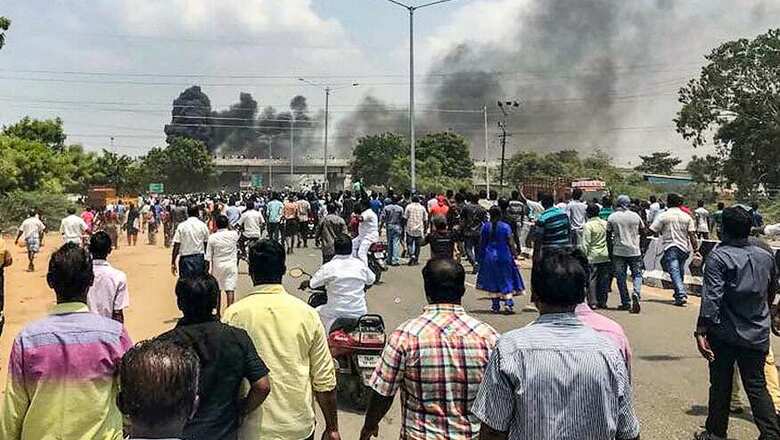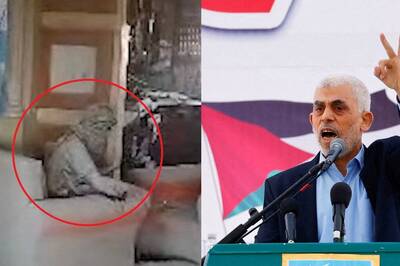
views
Prime Minister's Office has sought suggestions from all the heads of different government departments belonging to the civil services viz.. “to examine if service allocation/cadre allocation to probationers selected on the basis of the Civil Services Examination be made after the foundation course. Examine feasibility of giving due weightage to the performance in the Foundation course..."
It is a welcome move as there is always a need to review and assess institutions. Review and assessment would not necessarily mean that there is going to be a drastic change.
Civil services across the world have seen an evolutionary change as a response to the changing character and objectives of the state.
From Max Weber's bureaucracy in late 19th century to New Public Management (NPM) proposed by David Osborne and Ted Gaebler in their book ‘Reinventing Government’ in the late 1980s.
Digital era governance has followed NPM, which focuses on reintegrating government responsibilities, needs-based approach, digitalization (exploiting the transformational capabilities of modern IT and digital storage).
There are more than 20 services. The selection is through exams conducted by UPSC. It is a grueling exam with three stages and it takes around one year to complete.
The services are allocated as per the merit and the preference of the candidates. As per the serial number of UPSC the top five services are IAS, IFS, IPS, IP&TAFS and IRS.
So, the total marks obtained by the candidates in written and interview determine the overall rank of the candidate. Thus, the moot question is whether the marks obtained in a single exam should determine service of a candidate, without testing his or her skill sets?
It is obvious that the skill sets required by a Finance service, would be different than the police or Foreign Service. Each service requires different skill sets. IAS, IPS, IRS, Finance Services like mine require different skill sets.
I did history (honours) in college and according to the ranking, was allotted a Finance Service (IP&TAFS). I struggled with debit and credit for few years before mastering it.
A glaring example of mismatch of skill sets and the service is the Tuticorin firing on protesters. Tuticorin firing shows that the DM and SP did not have the temperament and skill sets to handle protests.
The situation would have been different if they had a dialogue; if they had spoken to the protesters, negotiated and kept the channels of communications open.
Why would the citizens attack collectorate in the first place? It is basically a reflection of citizen's complete distrust in the district administration and it is likely that they saw district administration as protectors of Sterlite. Judicial inquiry ordered on the firing will bring out the real reasons.
If we agree with the proposition that different services require different skill sets, then the next question is that what should be selection process for the different services.
In Army all the selected cadets have to undergo rigorous training for two years in IMA. There is a robust and continuous evaluation of cadets.
At the end of the training, each cadet is allotted the arm/regiment as per their overall assessment. But do the training Institutes/Academies of civil services have the requisite and robust evaluation systems in place. The answer is no.
Most of these academies are manned by officers of respective services, hence they could be subject to pulls and pressures.
One solution could be to send all the selected candidates to autonomous and fairly independent institutions like IIMs.
This could be followed by attaching the candidates in Blocks/Tehsils across the country for six months. Their assessment could be a combination of assessment by district officers, sarpanches and a percentage of citizens.
Candidates could be subjected to psychometric/aptitude tests, especially for selection to uniformed services like IPS, CISF and RPF.
On a macro level, civil services needs a comprehensive reform with main objectives of making it citizen centric, focus on domain expertise, encouragement of lateral entry , promotion based on quantifiable achievements rather than subjective assessments and review of performance every 10 years of service.
As a part of civil services, one area which needs immediate attention is police reforms. Recent cases of Unnao and Khatua highlights the need to insulate police from political interference.
It is a matter of concern that the directions given by Supreme Court in 2006 for police reforms are yet to be implemented by states. On December 22, 2006, the Supreme Court of India delivered a historic judgement in Prakash Singh Vs Union of India, instructing the central and state governments to comply with a set of seven directives that laid down practical mechanism to kick-start police reforms.
The seven directions of SC are as under:
1. Limit political control: Constitute a State Security Commission to ensure that the state government does not exercise unwarranted influence or pressure on the police, lay down broad policy guidelines and evaluate the performance of the state police.
2. Appoint based on merit: Ensure that the Director General of Police is appointed through a merit-based, transparent process, and secures a minimum tenure of two years.
3. Fix minimum tenure: Ensure that other police officers on operational duties (including Superintendents of Police in charge of a district and Station House Officers in charge of a police station) are also provided a minimum tenure of two years.
4. Separate police functions: Separate the functions of investigation and maintaining law and order.
5. Set up fair and transparent systems: Set up a Police Establishment Board to decide and make recommendations on transfers, postings, promotions and other service-related matters of police officers of and below the rank of Deputy Superintendent of Police.
6. Establish a Police Complaints Authority in each state: to look into public complaints against police officers of and above the rank of Superintendent of Police in cases of serious misconduct, including custodial death, grievous hurt or rape in police custody.
7. Set up a Selection Commission: A National Security Commission needs to be set up at the union level to prepare a panel for selection and placement of chiefs of the Central Police Organizations with a minimum tenure of 2 years.
There is also a need to take decision on the recommendations of second Administrative Reforms Commission. The reports of 2nd ARC are very comprehensive and cover the entire gamut of areas concerning civil services and reforms.
Civil services are the steel frame of the constitution. They are the implementors of government policies for the welfare of citizens. And the effective implementation would finally depend on the effectiveness & efficiency of the civil services on the whole.
It would be pertinent to mention, what Sardar Patel said on 10th October 1949 in the Constituent Assembly of India regarding civil services.
“If you want an efficient all-India service, I advise you to allow the service to open their mouth freely. If you are a Premier, it would be your duty to allow your Secretary, or Chief Secretary, or other services working under you, to express their opinion without fear or favour.”
“But I see a tendency today that in several provinces, the services are set upon and told, “No, you, are servicemen, you must carry out our orders.”
“The Union will go, you will not have a united India, if you do not have a good all-India service which has the independence to speak out its mind, which has a sense of security that you will stand by your word and that after all, there is the Parliament, of which we can be proud, where their rights and privileges are secure. If you do not adopt this course, then do not follow the present Constitution.”
The Services recruited through Civil Services Examination:
All India Services & Central Civil Services - Group A
Indian Administrative Service (IAS)
Indian Foreign Service (IFS)
Indian Police Service (IPS) Indian Post & Telecommunication Accounts and Finance Service (IP&TAFS)
Indian Revenue Service (IRS) - Income Tax
Indian Revenue Service (IRS) - Customs & Central Excise
Indian Audits & Accounts Service (IA&AS)
Indian Railway Traffic Service (IRTS)
Indian Railway Accounts Service (IRAS)
Central Industrial Security Force (CISF)
Indian Defence Accounts Service (IDAS)
Indian Defence Estate Service (IDES)
Indian Information Service (IIS)
Indian Railway Personnel Service (IRPS)
Railways Protection Force (RPF)
Indian Information Service (IIS)
Indian Civil Accounts Service (ICAS)
Central Civil Services - Group B
Union Territories Administrative Service
Union Territorries Police Service
Central Secretariat Service
Defence Secretariat Service
(Ashish Joshi, is a civil servant. He was the nodal officer for implementation for the recommendation for Sachar Committee Report and PM's new 15 Point Programme for welfare of the Minorities, Ministry of Minority Affairs (2006-2011). He is a post-graduate from St Stephen’s College and an alumnus of Indian Institute of Public Administration and National Institute of Financial Management. Views are personal.)



















Comments
0 comment